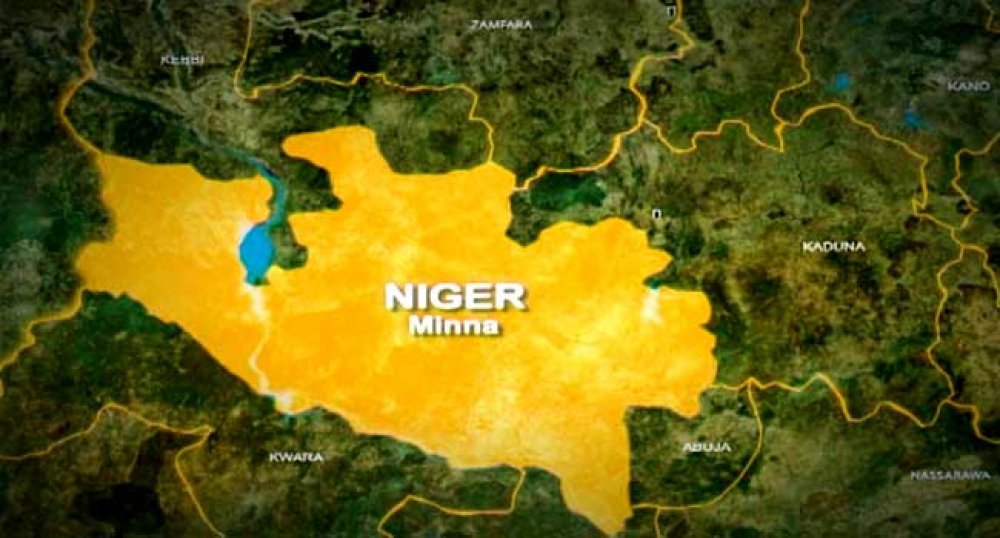 • Lagos records over 3,000 property litigations in four years
• Lagos records over 3,000 property litigations in four years
• N100 billion lost to frivolous court cases yearly
• Why litigants oppose ADR in property disputes, by experts
Despite the significant contribution of the real estate sector to the Gross Domestic Product (GDP) and economic development, disputes arising from property acquisitions, ownerships and investments are increasing in courts, and limiting the potential of investors.
The troubles associated with delays in justice delivery are also not helping to de-risk investments as millions of naira are lost in pursuing unending court cases. Property litigations are increasingly becoming a big challenge to investments in locations like Lagos, Abuja, Kano and Port-Harcourt, which are considered key centres of construction activities, having the highest property values, population and ongoing infrastructure projects.
While dispute is inevitable in most human relationships, especially business endeavours, experts say it portends a great risk factor with impacts, often resorting to huge financial losses and total collapse of transactions. The inability to dispense justice on such issues debars domestic and foreign investments in the real estate sector with an estimated N100 billion lost to frivolous court cases yearly. The development has made prospective investors wary, forcing them to commit huge amounts to ascertain legal status or seek advice to avoid litigation matters in property investments.
The Guardian learnt that property investment has become a capital-intensive venture as macroeconomic factors continue to impact the sector. With the huge amount of funds in real estate transactions, parties to disagreements find it hard to resolve issues amicably; rather they rely on the judicial system in resolving disputes, while pushing aside attendant problems such as the cost, delay and uncertainty in the process.
Nigeria’s legal system protects the rights of property owners based on the Land Use Act of 1979. There are many ways to settle property disputes; these include settling out of court or taking the case to the court. The judiciary often described as the last hope of the common man considering its role in justice dispensation, now constitutes a clog in the wheel of progress with the delays in the administration of justice particularly across various forms of litigations.
Cases before the court drag longer than necessary before resolution. Figures show that a total of 198,432 cases are pending across the court division of the Federal Capital Territory, Abuja as of the 2022/2023 legal year, with property-related litigation accounting for about 40 per cent of the cases.
According to a Not-For-Profit organisation, Abuja Gravel, Nigeria has over 27.5 million legal problems with land disputes accounting for 30 per cent of such issues. An official, who pleaded anonymity, told The Guardian that in Lagos, over 3,000 property-related litigations were documented in courts within the last three years, while in Rivers State, it was gathered that there have been over 1,000 lawsuits filed on land issues alone in the past 10 years.
The Guardian gathered that it could take over 20 years to decide a case, but most litigants still prefer to go to court. The courts are clogged with cases arising from struggles over issues such as title allocation, lack of proper documentation, unclear ownership, landlord/tenant battles, land encroachment/forced eviction, multiple land sales, intra-family land disputes and other real estate-related disputes. The general average case conclusion time in states in Nigeria is still between 12 and 18 months.
Findings show that in most cases that linger in the court, loss of return on investment could be as high as over N2.5 billion per case. In most landlord-tenant disputes, many of the landlords resort to legal action to either compel the tenant to pay the rent owed or to recover their property. Disputes arising from property-related matters have caused project failures, delays in project delivery timelines and abandonment.
In some cases, individuals, land dealers and property firms acquire landed properties illegally through forgery of title deeds, land grabbing, purchase, acquisition, ownership transfer, sales and re-sales, as well as the mortgage of landed properties .
There are unending court cases that have stalled several projects, leading to variations in contracts, delays in property transactions and decreases in property values, which also erode public confidence and make the property market generally unattractive.
Parties to disputes are often generally averse to Alternative Dispute Resolution (ADR) but constantly focus on the courts, which are often overwhelmed with a long list of cases. The long period between hearings and mentions for the trial of existing property matters has not translated to a speedy conclusion of cases, hence, loss of time, money, and resources by interested parties to cases.
An estate surveyor and valuer, Mr Francis Opaleke, said real estate and construction by their nature are timely; uncertain and cost-sensitive, hence, investors in the sector avoid a resolution process that may tie down their projects. According to him, this is why litigation is often the last resort because of the associated challenges, especially the slow justice delivery.
Opaleke said projects bogged down by dispute and end up in the court. “Some projects are financed through bank loans if you have a Joint Venture (JV) project or off-taker, where you are given a project timeline to deliver a project for 12 months,” he said.
Despite the reality that some disputants find it difficult to adopt ADR in tackling property litigation, Opaleke said the mechanisms are crucial to the sector to reduce the pressure on the courts.
He argued that the foundation of dispute resolution must be spelt out in real estate contracts since it is a party-driven business. “If you recognise the possibility that dispute will occur, you have to make provision on how it should be resolved, relying on ADR such as negotiation, mediation, arbitration and other mechanisms,” Opaleke said.
A fellow of the Nigerian Institution of Estate Surveyors and Valuers, Chief Biodun Olapade, emphasised that litigation is a difficult task and chances that it ends in Supreme Court for 20 to 25 years is certain and where it ends, matters will be referred to the high court for possession order before a claim can be made.
Olopade, who doubles as fellow, Chartered Institute of Arbitrator, said in many cases, such matters are abandoned halfway, stressing that the practice in Lagos is worse as activities of the so-called land touts otherwise referred to as Omo-Onile, can make one abandon land matter in court forever.
He said:” While the matter is in court, no proper or legal title may be obtained including the building plan approval process.”
For him, litigation that affects rental income arises as a result of a tenant’s inability to meet rental obligations as and when due, adding that while many tenants are distressed halfway through the tenancy period, “few are wicked with destructive tendencies to frustrate landlords.
“The law of tenancy also favours tenants more as conditions for ejection of tenants must be followed. Such grounds for ejection can be owners’ intention for personal use or major repairs that are evident. In other parts of the country such as Abuja, grounds for non-payment, if the rent is for one year, is an automatic ground for ejection without mandatory quit notice of six to three months depending on whether it is yearly, half-yearly, quarterly, or monthly tenancy other than seven days’ notice,” he said.
He lamented that the legal process is time-consuming with high costs of prosecution as well, explaining that this affects investments. Olapade observed that experience has shown how landlords choose the option of disposing their properties for regular income due to frustration from the tenants and courts, noting that lack of jurisdiction of customary courts on small rent claims under N2.5 million to N5 million unlike other states like Ogun State is also a big issue that Lagos State may have to explore.
“Imagine a landlord spending about N200,000 to prosecute a tenant paying less than N500,000 per year and also needing to wait for a period of six months to one year before judgment to eject a difficult tenant. Again, another factor affecting property investment is the distinction of judgment and execution of judgment.
“Recalcitrant tenants could wait until the process of forceful ejection is perfected or implemented. This is another cost and time-wasting. It is interesting to note that like any other matter in court, tenancy matters that start from Magistrate Court can end in Supreme Court as well,” he said.
According to him, two things need to be done urgently to encourage property investment; make the tenancy matter end in the high court, where it is an action of the Magistrate Court, or at the Court of Appeal if it starts from the High Court depending on the jurisdiction of the originating Courts and help tenancy matter from dragging, through regular regulations, which need to be done by the Chief Justice (CJ) of the State in line with the provisions of the Tenancy Law of Lagos state as an instance that empowers CJ to do so every two years.
Olapade further said: “There is a need to make ADR more popular by inserting such clauses of ADR in the tenancy agreement. Such clauses could be coined as ‘dispute arising from this agreement will be referred to Lagos Multi-Door Court House and the decision of the mediation shall be final. If such clauses are inserted in the tenancy agreement, litigation can be avoided. Time to get matters resolved is shorter and less expensive.”
Lagos-based lawyer, Rasheed Fatoki, said the increase in property litigations in the court system has always been a trend with many people who approach the court contending over ownership of a property.
Asked why many property-related litigants always approached the court, he said many of them believe that there is no alternative to going to court despite the existence of ADR. “Parties to dispute ultimately have to go to the court because when they get to the court, the Court will resolve the issues either way and grant judgment to the parties. And if any of the parties are not satisfied with the decision can go further on appeal, “Fatoki said.
A Senior Advocate of Nigeria, Ebun-Olu Adegboruwa told The Guardian that a situation whereby parties to dispute shun alternative dispute resolution is also applicable to the law profession, where some practicing lawyers resist its application.
He urged stakeholders to embrace arbitration and ADR, instead of constantly focusing on the court systems, which are always overwhelmed.






